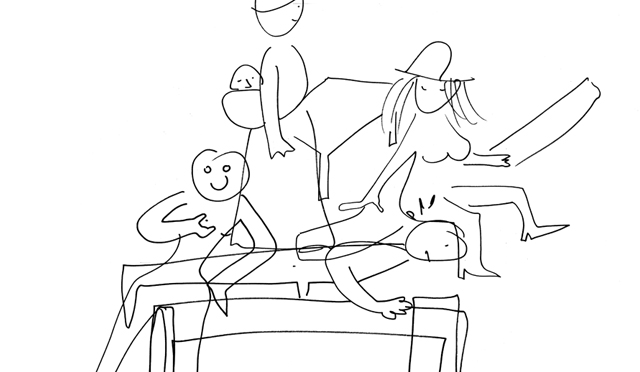Search
To search for an exact match, type the word or phrase you want in quotation marks.
A*DESK has been offering since 2002 contents about criticism and contemporary art. A*DESK has become consolidated thanks to all those who have believed in the project, all those who have followed us, debating, participating and collaborating. Many people have collaborated with A*DESK, and continue to do so. Their efforts, knowledge and belief in the project are what make it grow internationally. At A*DESK we have also generated work for over one hundred professionals in culture, from small collaborations with reviews and classes, to more prolonged and intense collaborations.
At A*DESK we believe in the need for free and universal access to culture and knowledge. We want to carry on being independent, remaining open to more ideas and opinions. If you believe in A*DESK, we need your backing to be able to continue. You can now participate in the project by supporting it. You can choose how much you want to contribute to the project.
You can decide how much you want to bring to the project.

In 2017, Abraham Poincheval lived for a week inside a rock measuring 2.5metres in height by 1.6 metres in diameter, from which he had excavated the shape of a seated person for an exhibition at the Palais de Tokyo in Paris. An expert in spending time enclosed in extremely small spaces, apropos Pierre (Stone) the artist says that ‘the impression of speed only depends on us, on our own point of view’. Once again, stones are fashionable in contemporary art, or maybe they never really went out of fashion. Like the metaphor of motionlessness or slowness speaking of the Anthropocene, the destruction of the environment, colonialism or even the questioning of the art market, this month of October we have focused on stony matter, which we have examined from different angles.
None of the authors who have contributed to this issue agree with the Spanish saying ‘menos da una piedra’ (literally, ‘a stone gives less’, meaning ‘better than nothing’), as proved by Nerea Arrojería in her text on the theft of one of the small stones in a Yoko Ono installation at her show in a Canadian museum. The controversy surrounding the insurance value of the work is an excuse for revising the prices that other famous stones have fetched on the art market, chiefly at auctions.
Anna Dot presented stones as a source of knowledge. Analysing games, the gravel industry and the property market, she discussed ancient tongues (the Rosetta Stone) and the works by Bruno Munari, Lorenz von Liburnau and Irene Kopelman. Albert Alcoz, focusing on audiovisuals, reviewed and commented on a long list of artworks in which stones, rocks and pebbles take centre stage. At A*Desk we already had had occasion to discuss Pierre Bismuth’s film on the fake rock Ed Ruscha left somewhere in a desert.
Captured rocks, and rocks that have been stolen and deported feature in the text by Carlota Surós about the Kueka Stone and the Global Stone art project by Wolfgang Kraker von Schwarzenfeld. Despite the happy ending for the indigenous people who are the legitimate owners of the stone, this isn’t an isolated case as in 2012 the El Chaco meteorite was not allowed to travel to Kassel on occasion of documenta 13. Eurocentricity, colonial relations and Western privileges in the art world. Nothing new under the sun. To take full advantage of the theme of stones, Alexandra Laudo chatted to alfonso borragán about his Litófagos (Lithophagous) project. In short, stones go such a long way that they can even be eaten.
Picture: Egill Sæbjörnsson, A Night turns into a Day, 2012

A*DESK is a critical platform focused on publishing, training, experimentation, communication and dissemination in relation to contemporary culture and art, which is defined by transversality. The starting point is contemporary art, because that is where we come from and this awareness allows us to go much further, to incorporate other disciplines and forms of thought in order debate issues that are relevant and urgent for understanding our present.
"A desk is a dangerous place from which to watch the world" (John Le Carré)